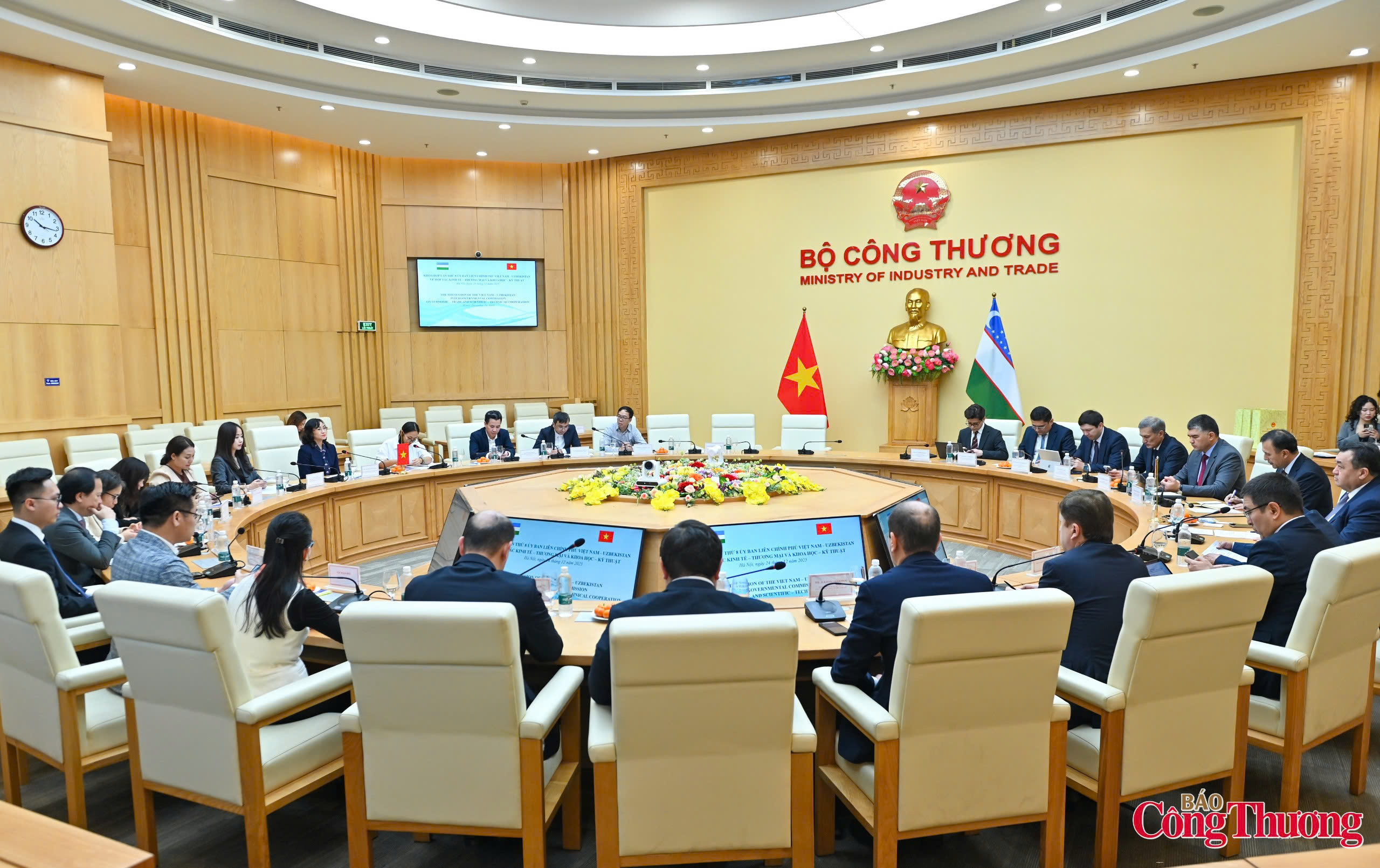
Vietnam, Uzbekistan propose joint trade working group mechanism
19:05 | 23/03/2025 10:32 | 25/12/2025Cooperation
Strategy to harmonize domestic regulations with global norms.
Politburo member and Permanent Member of the Secretariat Tran Cam Tu has signed Conclusion No.207-KL/TW, dated November 10, 2025, regarding the continued implementation of Directive No.30-CT/TW (issued on January 22, 2019) on strengthening Party leadership and State management responsibilities in consumer rights protection.
In this Conclusion, the Secretariat mandates that party committees, party organizations, authorities, and state management agencies at all levels fully comprehend and decisively execute the tasks and solutions outlined in Directive No.30-CT/TW.
Concurrently, the directive mandates the execution of priority tasks to bolster Party leadership and State governance regarding consumer rights protection in the new context.
A central mandate outlined in the Conclusion is the review, development, and perfection of the system of standards and technical regulations governing the quality of products, goods, and services. Authorities are required to promptly disclose information and disseminate it to enterprises and business associations to ensure full comprehension and compliance. Furthermore, the document calls for the development of a roadmap to raise national standards and regulations, ensuring they are commensurate with and aligned to international benchmarks.
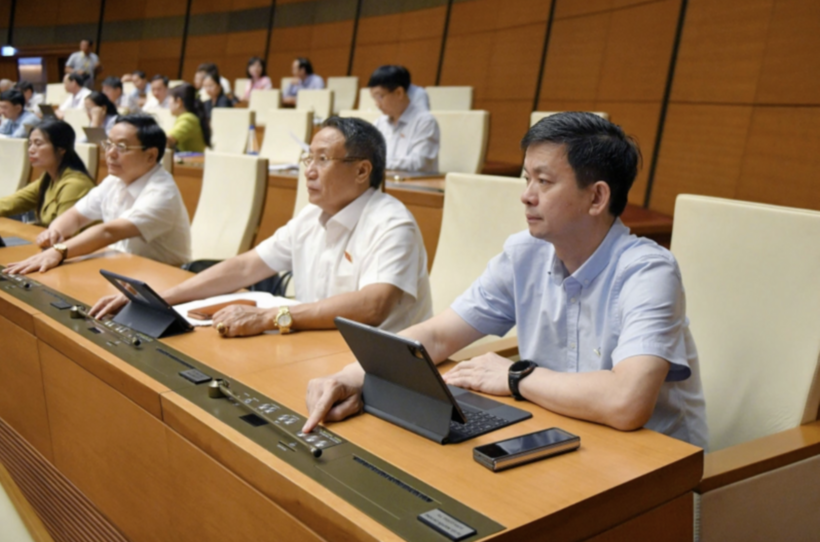
Lawmakers voting to approve the Amendment to the Law on Standards and Technical Regulations at the Dien Hong Hall on June 14, 2025. Photo: NA Portal
Regarding the development and refinement of standards and technical regulations in Vietnam, on June 14, 2025, the National Assembly voted to pass the Law Amending and Supplementing a Number of Articles of the Law on Standards and Technical Regulations. This legislation marks a critical step in perfecting the legal framework, helping to elevate national quality standards, meet the demands of deep international integration, and foster innovation.
A fundamental shift introduced by the Law involves the systematization and clarification of key concepts, scope, and application principles, as well as the procedures for publishing standards and technical regulations.
Significantly, the Law marks the first time the concept of “Technical Barriers to Trade” has been codified. This addition helps clarify the boundaries and principles for developing and applying standards, ensuring they do not constitute unnecessary obstacles to trade in the context of Vietnam’s deep integration through Free FTAs.
A notable highlight of the Law is the provision on establishing a National Standardization Strategy under Article 8a. This serves as a long-term instrument designed to provide overarching direction and synchronize technical standardization infrastructure. It aims to ensure seamless integration from central to local levels while aligning with key objectives: sustainable development, digital transformation, and international integration
The Strategy prioritizes standards serving strategic technologies and high-tech exports, while emphasizing the harmonization of domestic standards with international norms to enhance national competitiveness.
In line with the broader trend of comprehensive digital transformation, the Law introduces Article 8c, establishing the National Database on Standards, Metrology, and Quality. This is designed as a unified, modern digital platform fully interconnected with other government data systems.
This platform will serve as a vital tool for state governance, enabling public access to data on standards, conformity assessment bodies, declarations of conformity, and the management of measuring instruments. Such measures will not only cut costs and reduce administrative burdens but also improve the efficiency of state supervision. Crucially, it supports enterprises by providing transparent and timely access to technical information.
Ultimately, the passage of the Law Amending and Supplementing a Number of Articles of the Law on Standards and Technical Regulations represents a significant stride in perfecting Vietnam's legal framework. It is poised to elevate national quality, meet the demands of deep international integration, and foster innovation."
The Ministry of Industry and Trade ramps up efforts to finalize technical standards framework
According to a report by the Ministry of Science and Technology, the system of national standards and national technical regulations has undergone frequent review, amendment, and supplementation in recent years. This process aims to ensure alignment with practical requirements and increase the level of harmonization with international norms.
As of 2024, Vietnam has published over 14,000 national standards and nearly 800 national technical regulations. Notably, the harmonization rate with international and regional standards has exceeded 60%. Concurrently, efforts to develop and refine the standards framework have been intensified across all ministries, sectors, and local authorities.
A prime example is the Ministry of Industry and Trade (MoIT). In recent times, the Ministry has intensified its efforts in standardization, technical regulation, and quality management for products within its jurisdiction, aiming for synchronization and international integration.
Specifically, in 2024, the MoIT drafted, finalized, and submitted to the Ministry of Science and Technology for appraisal and publication 20 draft national standards on ore concentrates and 2 national standards on thermal power plants.
Concurrently, units under the Ministry developed and verified 12 draft national technical regulations as part of the MoIT's 2024 legislative development program. These efforts ensured strict adherence to schedule and quality requirements for technical regulation dossiers in accordance with current regulations
Furthermore, the MoIT has proactively reviewed legal regulations and reported to the Prime Minister regarding obstacles encountered during the drafting and issuance of national technical regulations for national petroleum reserves.
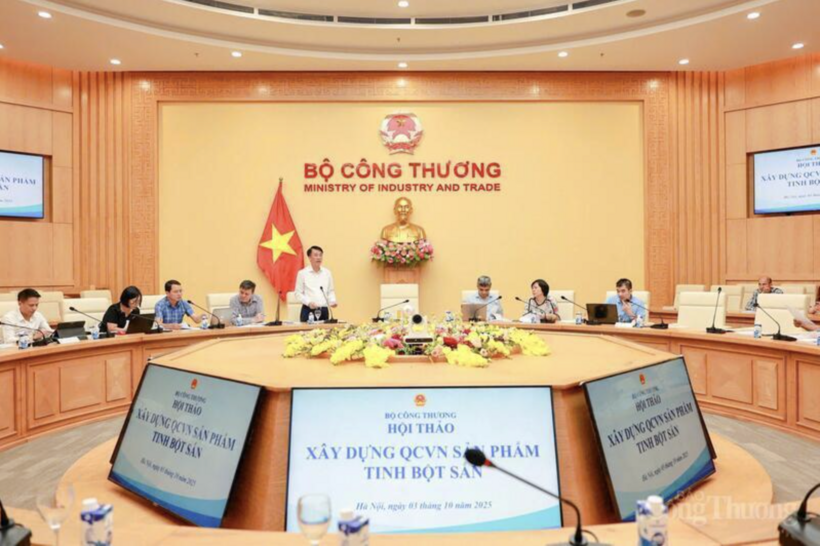
Seminar on developing technical regulations for cassava starch products organized by the Ministry of Industry and Trade on October 3. Photo: Thanh Van
Moving into 2025, the development and refinement of the standards system and quality management for products under the Ministry's jurisdiction continue to be intensified. Specifically, on June 22, 2025, the MoIT issued Circular No.41/2025/TT-BCT, promulgating the National Technical Regulation on Electrical Safety (QCVN 25:2025/BCT). This regulation officially took effect on August 8, 2025
The MoIT has also initiated the drafting and public consultation process for numerous technical regulations. Key drafts include the National Technical Regulation on electric vehicle (EV) charging stations (in coordination with the Ministry of Science and Technology); safety of industrial explosives (specifically composite high explosives); hydropower works; liquid milk; refined vegetable oils; alcoholic beverages; and cassava starch products.
These regulations are developed based on core principles of objectivity, feasibility, and compatibility with Vietnam's practical conditions as well as international practices. The overarching objectives are to safeguard consumer rights, foster a transparent and fair business environment, and drive socio-economic development.
Beyond product standards, the MoIT has also coordinated the implementation of criteria regarding commercial infrastructure. Key initiatives include establishing criteria for rural commercial infrastructure for the 2021-2025 period and deploying pilot market models ensuring food safety in compliance with TCVN 11856 on food trading markets.
Under Conclusion No.207-KL/TW, the Secretariat has mandated an urgent review to fully and timely institutionalize new Party guidelines into the state legal framework. This directive applies to the Law on Protection of Consumers' Rights and related specialized legislation, including the Laws on Product and Goods Quality, Standards and Technical Regulations, Food Safety, Electronic Transactions, and the Handling of Administrative Violations, along with their guiding documents. The objective is to ensure a systematic, synchronous, and comprehensive legal environment that effectively closes existing legal loopholes, thereby meeting the demands of modern development, digitalization, and international integration.

19:05 | 23/03/2025 10:32 | 25/12/2025Cooperation
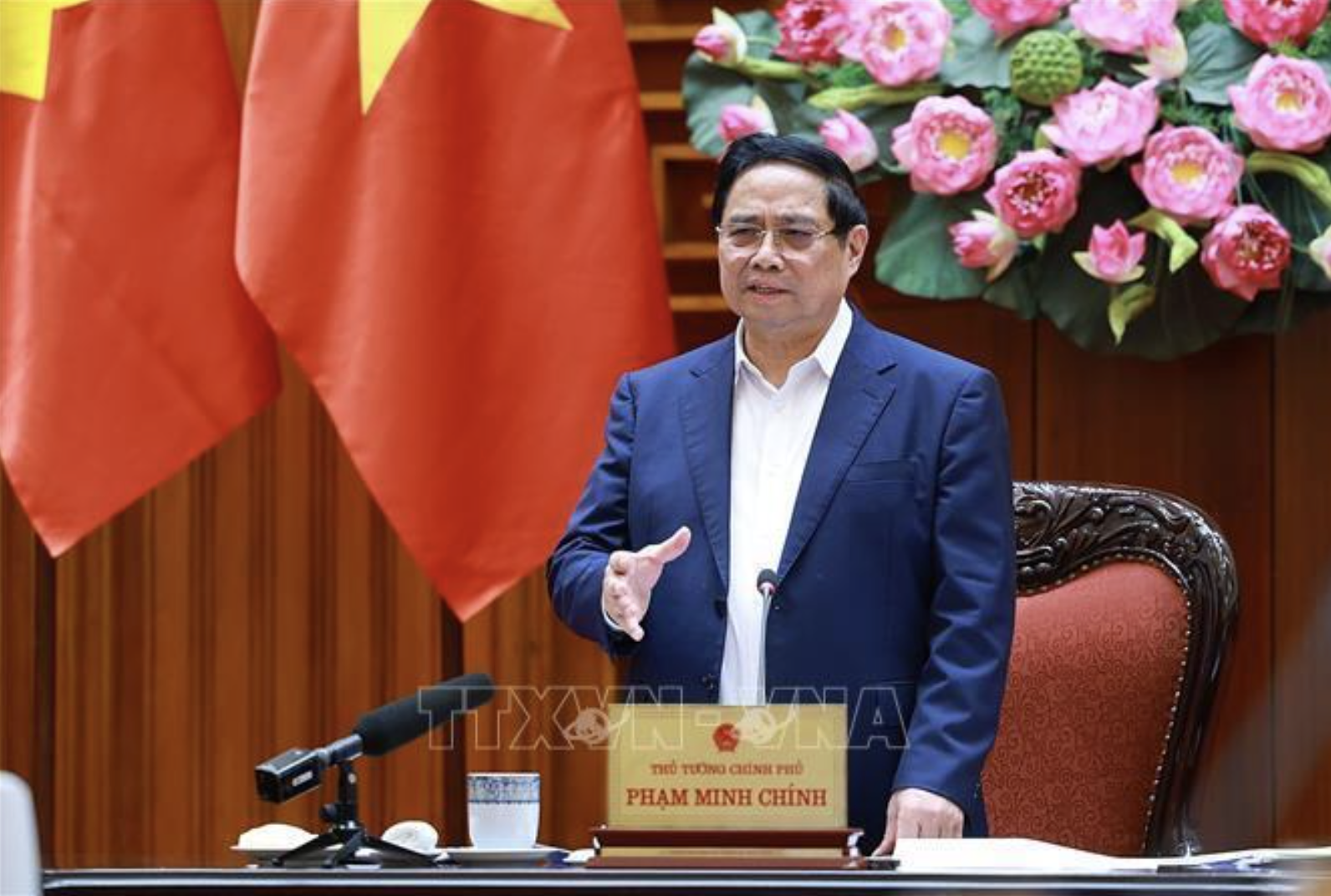
19:05 | 23/03/2025 23:11 | 24/12/2025News and Events

19:05 | 23/03/2025 23:06 | 24/12/2025Trade

19:05 | 23/03/2025 15:32 | 24/12/2025Trade
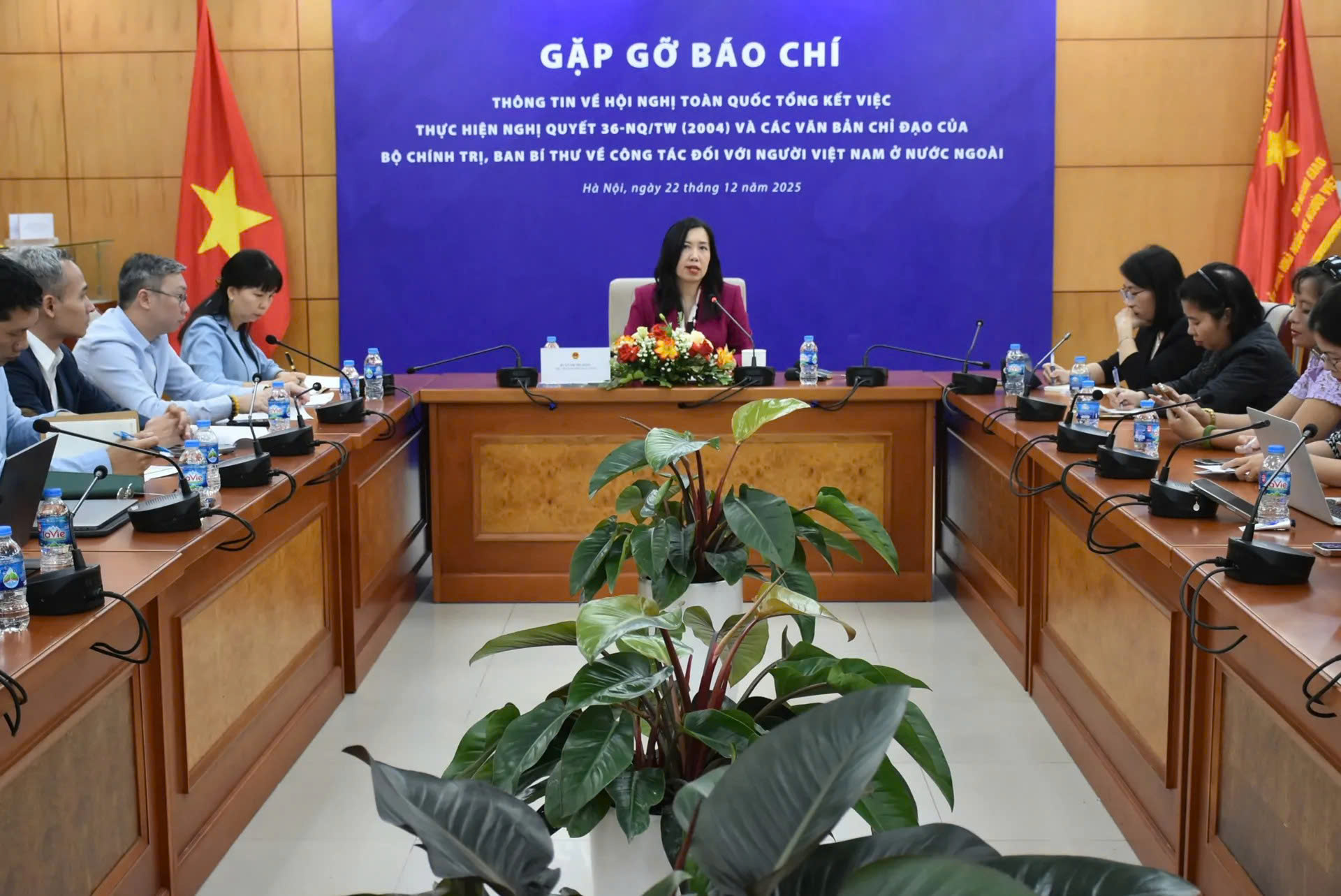
19:05 | 23/03/2025 16:32 | 23/12/2025News and Events